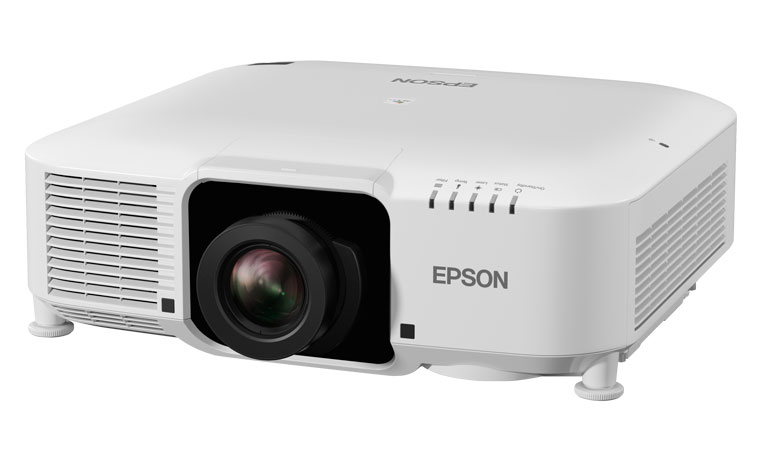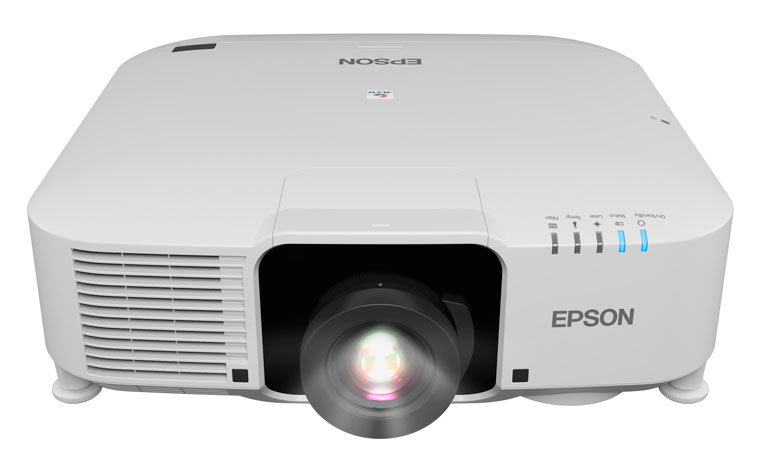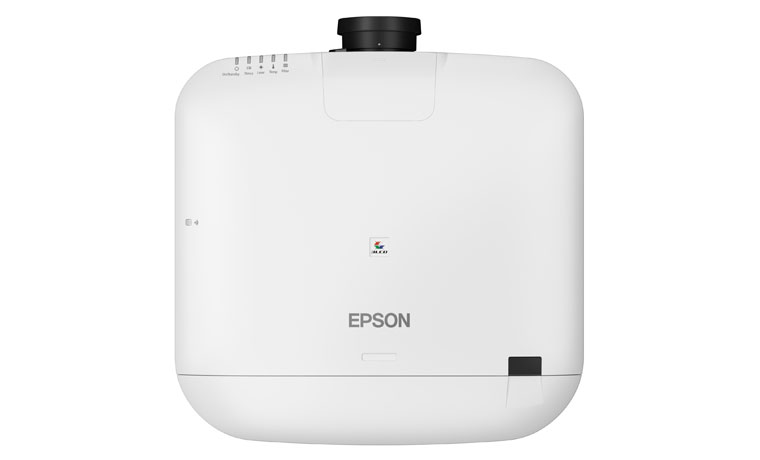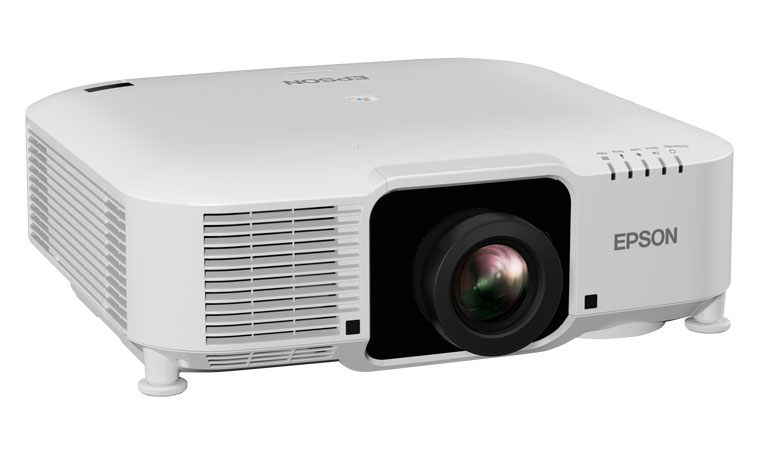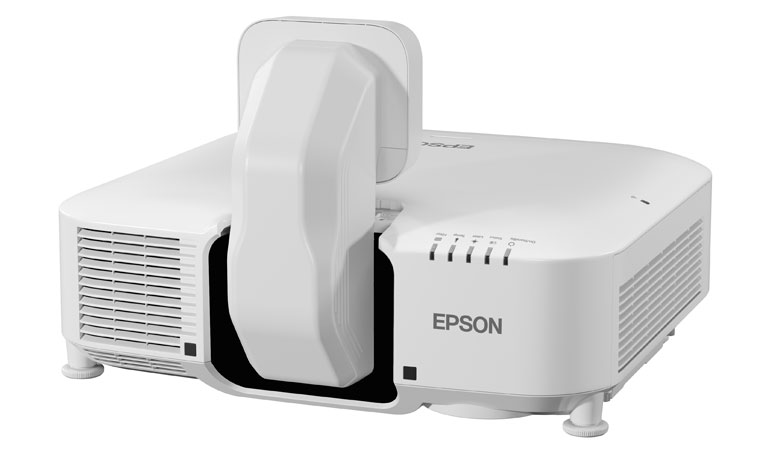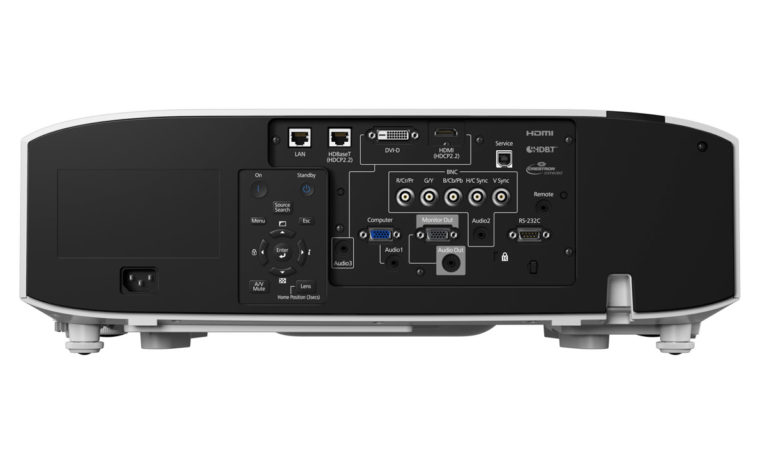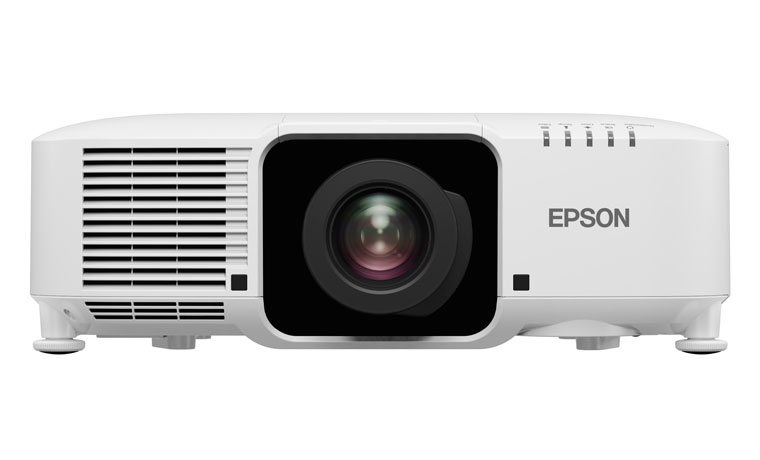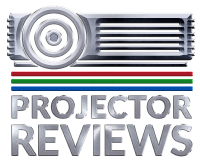Lasers have exceptionally long operational lifespans; those in the Pro L1070U are specified to last 20,000 hours in Normal Lamp mode, which greatly reduces maintenance needs. According to Epson, that 20,000-hour figure is the time it takes the maximum brightness to drop by half of its initial value.
Speaking of brightness, the Pro L1070U claims a peak light output of 7000 lumens, which is more than enough for well-lit commercial venues. Of course, the peak light output will undoubtedly be less if you have it calibrated, but I bet it will still be quite high compared to home-theater projectors, which are designed for dark rooms. I always take brightness specs with a grain of salt, but I wouldn't be surprised if the measured value is still impressive.
Likewise, I view manufacturer contrast specs with a skeptical eye. Epson claims a dynamic contrast ratio of 2,500,000:1 using a dynamic iris, which will probably be less in a real-world measurement, especially after calibration. Still, I'd wager that the effective dynamic range is probably quite good.
The Pro L1070U can accommodate 11 different available lenses, all of which provide powered focus, zoom, and lens shift with multiple lens memories to store different settings. The supplied ELPLM08 lens has a zoom ratio of 1.6x and a throw ratio from 1.44:1 to 2.33:1. It also offers a wide lens-shift range (±67% vertical, ±30% horizontal), which provides great flexibility in placement. In addition, the projector provides horizontal and vertical keystone correction, but I strongly recommend against using them if possible, since they reduce visible detail in the image.
One of the available lenses is the ELPLX01 ($8249), which enables the projector to be used in an ultra-short-throw (UST) application. This lens features a 0.35 throw ratio and zero offsets, making it ideal for narrow spaces and rear-projection setups.
In some applications, multiple projectors are used to create a truly giant image. The Pro L1070U offers advanced edge blending, which joins color-matched images from several projectors into one super-sized display. In addition, one or more projectors can be conveniently controlled remotely over the Web or the venue's local network.
One very cool feature is the ability to play content directly from a USB storage device plugged into the projector's USB port. Alternatively, you can stream content from a Mac or Windows PC via Wi-Fi to the projector by plugging an optional wireless dongle (ELPAP10, $99) into the same USB port. This also requires Epson's iProjection software running on the computer.
The Pro L1070U is fully compatible with Crestron, Extron, and AMX control systems. This allows users to easily integrate the projector into their existing system, which is especially important if it's placed in a relatively inaccessible location, such as a high ceiling.

